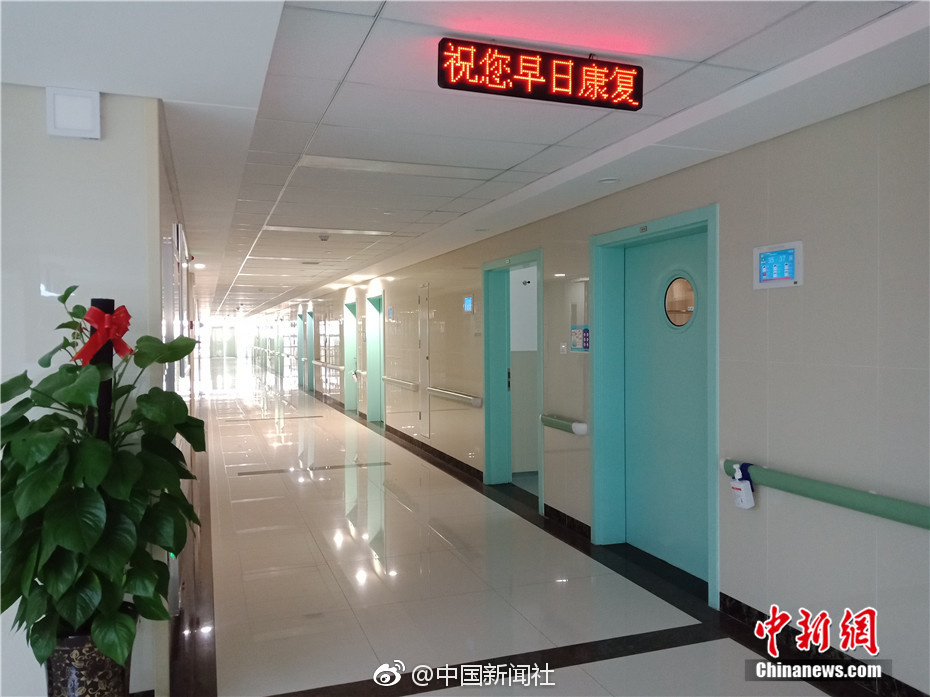
The five functional modules of the operating system are processor management, memory management, device management, file management and operation management. Processor management The most basic function of processor management is to process interrupt events. After configuring the operating system, various events can be processed.
The functions of the computer operating system include: processor management, memory management, device management, file management, job management and other functional modules. Processor management. The most basic function of processor management is to handle interrupt events. The processor can only detect interrupt events and generate interrupts and cannot process them.
Storage management is divided into several functions: storage allocation, storage sharing, storage protection, and storage expansion.Equipment management has the following functions: equipment allocation, equipment transmission control, and equipment independence. File management: file storage space management, directory management, file operation management, file protection.
The operating system should usually include the following five functional modules: (1) Processor management. When multiple programs are running at the same time, solve the problem of processor (cpu) time allocation. ( 2) Operation management. The program to complete an independent task and its required data constitute a task.
The function of the operating system is mainly reflected in the management of computer resources - microprocessors, memory, external devices, files and tasks. The operating system sets this management function into the corresponding program management module, and each management module is responsible for a certain function.That is, the five functions of the operating system.
The operating system has five functions: processor management: mainly controls and manages the work of the CPU. Storage management: mainly carry out memory allocation and management device management: mainly manage basic input and output device file management: responsible for the organization, storage, operation and protection of computer files, etc.

There are the following types of management systems: the management system of the finished product set. This kind of system is a stereotyped management system, which makes a small number of functional adjustments to the software through the parameter settings of the software.
Transaction Processing System (TPS): Operators and supervisors are used to input transactions, events, sort, list, merge updates, output detailed reports, lists and summaries, etc. Management Information System (MIS): Middle managers are used to input general transaction data and simple models to process routine reports.
Adgecal management system Academic management system is one of the most core management systems of the school, which is responsible for arranging and managing the school's teaching activities. It includes curriculum setting, teaching plan, teacher arrangement, examination management and other contents.
VMware vSphere: It is a virtualization management platform that can be used to manage virtual machines, storage and networks, etc. Nagios: It is an open source network monitoring system that can be used to monitor network devices, servers and applications, etc.
Financial subsystem: providing the function of financial management information; Decision support subsystem: make the logistics information system reach a higher level.
ERP management system brand Youyou, Jindie International Software, Wave Software, Dingjie Software, Zhenghang Software. Use friends.
1. System management refers to the information technology system that manages enterprises, and file management is one of the five major functions of the operating system.First, network management refers to the centralized management of resources on the network by network administrators through network management programs.
2. System Management regards organizational components as interrelated and interdependent systems, so it advocates applying the system concept to the management concept.
3. System management refers to the process of maintaining, managing and monitoring computer systems. As an important part of enterprise informatization construction, the importance of computer system management cannot be ignored.
Casino Plus-APP, download it now, new users will receive a novice gift pack.
The five functional modules of the operating system are processor management, memory management, device management, file management and operation management. Processor management The most basic function of processor management is to process interrupt events. After configuring the operating system, various events can be processed.
The functions of the computer operating system include: processor management, memory management, device management, file management, job management and other functional modules. Processor management. The most basic function of processor management is to handle interrupt events. The processor can only detect interrupt events and generate interrupts and cannot process them.
Storage management is divided into several functions: storage allocation, storage sharing, storage protection, and storage expansion.Equipment management has the following functions: equipment allocation, equipment transmission control, and equipment independence. File management: file storage space management, directory management, file operation management, file protection.
The operating system should usually include the following five functional modules: (1) Processor management. When multiple programs are running at the same time, solve the problem of processor (cpu) time allocation. ( 2) Operation management. The program to complete an independent task and its required data constitute a task.
The function of the operating system is mainly reflected in the management of computer resources - microprocessors, memory, external devices, files and tasks. The operating system sets this management function into the corresponding program management module, and each management module is responsible for a certain function.That is, the five functions of the operating system.
The operating system has five functions: processor management: mainly controls and manages the work of the CPU. Storage management: mainly carry out memory allocation and management device management: mainly manage basic input and output device file management: responsible for the organization, storage, operation and protection of computer files, etc.

There are the following types of management systems: the management system of the finished product set. This kind of system is a stereotyped management system, which makes a small number of functional adjustments to the software through the parameter settings of the software.
Transaction Processing System (TPS): Operators and supervisors are used to input transactions, events, sort, list, merge updates, output detailed reports, lists and summaries, etc. Management Information System (MIS): Middle managers are used to input general transaction data and simple models to process routine reports.
Adgecal management system Academic management system is one of the most core management systems of the school, which is responsible for arranging and managing the school's teaching activities. It includes curriculum setting, teaching plan, teacher arrangement, examination management and other contents.
VMware vSphere: It is a virtualization management platform that can be used to manage virtual machines, storage and networks, etc. Nagios: It is an open source network monitoring system that can be used to monitor network devices, servers and applications, etc.
Financial subsystem: providing the function of financial management information; Decision support subsystem: make the logistics information system reach a higher level.
ERP management system brand Youyou, Jindie International Software, Wave Software, Dingjie Software, Zhenghang Software. Use friends.
1. System management refers to the information technology system that manages enterprises, and file management is one of the five major functions of the operating system.First, network management refers to the centralized management of resources on the network by network administrators through network management programs.
2. System Management regards organizational components as interrelated and interdependent systems, so it advocates applying the system concept to the management concept.
3. System management refers to the process of maintaining, managing and monitoring computer systems. As an important part of enterprise informatization construction, the importance of computer system management cannot be ignored.
Free sports events uefa champions league app android
author: 2025-01-09 23:55Free sports events uefa champions league app android
author: 2025-01-09 23:39bingo plus update today Philippines
author: 2025-01-09 22:55 DigiPlus fair value
DigiPlus fair value
448.15MB
Check bingo plus update today Philippines
bingo plus update today Philippines
368.93MB
Check Casino Plus
Casino Plus
894.97MB
Check Hearthstone Arena class tier list 2024
Hearthstone Arena class tier list 2024
422.74MB
Check Casino Plus
Casino Plus
171.53MB
Check UEFA live free
UEFA live free
726.72MB
Check bingo plus update today Philippines
bingo plus update today Philippines
284.66MB
Check Walletinvestor digi plus
Walletinvestor digi plus
647.25MB
Check Arena plus APK
Arena plus APK
428.98MB
Check Europa League app
Europa League app
933.15MB
Check UEFA Champions League
UEFA Champions League
168.26MB
Check LR stock price Philippines
LR stock price Philippines
223.45MB
Check Casino Plus free 100
Casino Plus free 100
432.94MB
Check Hearthstone arena class win rates reddit
Hearthstone arena class win rates reddit
266.19MB
Check Hearthstone Wild Decks
Hearthstone Wild Decks
966.18MB
Check UEFA TV
UEFA TV
446.97MB
Check DigiPlus Philippine
DigiPlus Philippine
647.33MB
Check UEFA live free
UEFA live free
517.19MB
Check UEFA Europa League
UEFA Europa League
351.27MB
Check TNT Sports
TNT Sports
458.15MB
Check Champions League
Champions League
777.53MB
Check Champions League
Champions League
264.76MB
Check UEFA Champions League live streaming free
UEFA Champions League live streaming free
719.54MB
Check Arena Plus login
Arena Plus login
684.87MB
Check Hearthstone Arena win rate
Hearthstone Arena win rate
846.63MB
Check App to watch Champions League live free
App to watch Champions League live free
358.75MB
Check Casino Plus free 100
Casino Plus free 100
381.69MB
Check UEFA Champions League live streaming free
UEFA Champions League live streaming free
175.12MB
Check Arena plus APK
Arena plus APK
195.49MB
Check UEFA Champions League live
UEFA Champions League live
624.72MB
Check European Cup live
European Cup live
185.37MB
Check PAGCOR online casino free 100
PAGCOR online casino free 100
533.84MB
Check UEFA live free
UEFA live free
754.35MB
Check UEFA European championship
UEFA European championship
393.55MB
Check UEFA EURO
UEFA EURO
985.93MB
Check Bingo Plus stock
Bingo Plus stock
595.11MB
Check
Scan to install
Casino Plus to discover more
Netizen comments More
2886 bingo plus update today
2025-01-09 23:43 recommend
1252 UEFA live free
2025-01-09 23:19 recommend
2842 Bingo Plus
2025-01-09 22:57 recommend
1809 Bingo Plus
2025-01-09 22:49 recommend
809 Casino Plus GCash login
2025-01-09 22:22 recommend